6 Ways You’re Overheating Your Hard Drive & What to do

I think there's an issue with my storage device, but I'm not sure
Start a free evaluationAn overheating hard drive can be a serious problem for any computer user. Every hard drive will eventually die given enough time, but many go before their time without the proper care. One of the most common ways you get a dead hard drive prematurely is that the delicate insides of the HDD overheat.Mac computers also overheat for similar reasons, even smartphones and flash drives build up heat despite their smaller size.In this article, we will explain how to tell if your hard drive is overheating, and how to cool down your HDD. We will also discuss some common symptoms to look out for and the steps you can take to fix an overheating hard drive.
6 Ways You’re Overheating Your Hard Drive
1. When you don’t clean your computer vents
It’s a universal law: dust is everywhere and it will get inside everything. No matter how well you clean your desk, dust still will find its way inside your computer. Therefore, you must regularly clean your computer and laptop air vent to prevent your HDD from overheating.Dust build-ups keep heat inside your computer either by blocking the hot air flow out of it or by absorbing and trapping the heat. The best way to clean your device’s innards without harming the sensitive components is to use canned air to dust the innards of your computer regularly. Also, be sure that no dust build-up has occurred in the vents themselves as well.
2. By blocking computer ventilation
Make sure to never block your computers and laptop vents. Not even partially. Keep at least 1 foot of space between the vents and any obstruction.The hot air must leave your machine. With the surface blocking the air from circulating, it is going to stay inside, overheating the hard drive.Placing a laptop on a soft surface like a bed or sofa is also a bad idea since the laptop will sink into a soft surface and bury any vents on the side.
3. Ignoring the cooling system warnings
The cooling system is what pushes the hot air out of your computer. Keeping it operating is crucial for your hard drive’s long-term health. Your computer may detect if the system outright fails, but a merely underperforming cooling system also puts it at risk. If your computer feels especially hot and you cannot hear the cooling system going, it’s not working correctly. As well as if your fan does work, but it sounds like it’s working extremely hard even while the computer barely uses any of the CPU, that’s also a sign of overheating.So, pay close attention to any first signs to provide a proactive solution and prevent your hard drive from melting.
4. Placing your computer on heat-absorbing materials
Every material has its own level of thermal conductivity, meaning how well it absorbs or dissipates heat. The surface material that your computer lays on can help or hurt its health. Cotton and polyester, found in things like carpets and bed sheets, are terrible at dispelling heat. The heat your laptop produces must dissipate. When all the heat stays at the source, you’re not only risking a hard drive failure but also risking starting a fire. There are also many products out there that can help keep the temperature down, like cooling pads or stands to elevate the laptop.
5. Leaving your computer in warm or heat places
Putting your machine in a place where the air is well above room temperature doesn’t do your cooling system any favors.That’s because besides the heat your computer produces while working, it will add the heat coming from the surface or from the warm objects near it.Here the important thing is to avoid placing your PC or laptop in places like:
- Fireplace mantels and other heat-adjacent surfaces
- Under straight sunlight
- At the same table with other computers
- Leave it near heat-producer materials or objects
This can avoid several hard drive failures.
6. Leaving your computer case open
You might think that opening the case of your computer will keep the computer cooler. This is a myth.Your computer cooling system is designed to direct cool air to very specific parts of your computer’s insides. Opening the case will disrupt the specified circulation of cool air. Also, the case protects the innards from dust and dirt. And dirt and dust are enemies of your computer cooling.Therefore, you will not cool down your computer by opening its case, in fact, it can make the computer hotter. And for that, keeping the case is one way to avoid hard drive overheating.

Symptoms of an overheating hard drive
Because of the delicate nature of what a hard drive is, it’s not uncommon for you to experience hard disk errors when working on your computer.
- The computer surface is too hot to touch
- Constant freezing
- The slowdown of performance
- Memory errors
- Blue screens
- Suddenly shutdowns
- Errors while booting
Since some of these symptoms are similar to malware infection, make sure to run your antivirus and antimalware software before proceeding with HDD overheating solutions.
Why is the hard drive overheating
The ideal temperature for your computer’s hard drive is between 77° F and 122° F (25°C and 50°C). Once you see temperatures enter the 140°F to 160° F range, your computer hard drive is melting and you must take action to repair it. Start by eliminating the causes of this overheating.
- Malware
- Block airflow
- Malfunctioning fans
- Dust on the vents
- Bad sectors
- Using the laptop on a not recommended surface (pillows, bed, sofa, etc.)
- High ambient temperature
- Mechanical and electrical problems
It’s nice to note that even if there is actual fire damage to your hard drive, data recovery is possible.
How to fix overheating hard drive
There are a few things to fix overheating hard drives. However, remember that preventing your hard drive from overheating is always the best solution.One more tip before you try these solutions, make sure to schedule regular backups of your hard drive data. This way you’ll always have your files, no matter what happens to your device.
Fix 1. Close programs you’re not using to fix overheating hard drive
Software and other programs functioning simultaneously, even in the background, use a lot of your computer memory. This can slow down processes, decrease your computer performance, and overheat your hard drive.Open Task Manager to close any activity you’re not currently using to fix the overheating hard drive issue.
Fix 2. Fix bad sectors on the hard drive
Bad sectors are one of the causes of overheating hard drives. To fix it, open a Windows File Explorer window and find the drive you wish to check. Right-click it and select Properties. Go to the Tools section and then click on Check.
Fix 3. Check your device for malware
Cybercriminals are great at finding ways inside computers, sometimes even infecting your device with ransomware.Use your antivirus and antimalware to scan and remove any infection from your computer. Then, set automatic scans to prevent any virus infection.
Conclusion
Overheating hard drives can cause serious problems for your computer. To prevent this issue, keep your device in a cool, well-ventilated area and avoid blocking the vents. Common causes of overheating hard drives include dust buildup and high ambient temperatures. If your hard drive is overheating, you may notice slow performance or frequent crashes. To fix this problem, you can try cleaning the dust out of your device and checking the temperature of your hard drive. If the issue persists, you may need to seek professional data recovery help.
Related services
These are the most commonly requested data recovery services. At our headquarters' cleanroom lab, our certified engineers conduct a thorough review of any type of physical storage device, determining if there is logical or physical damage and carefully restoring all of the lost files.ces.
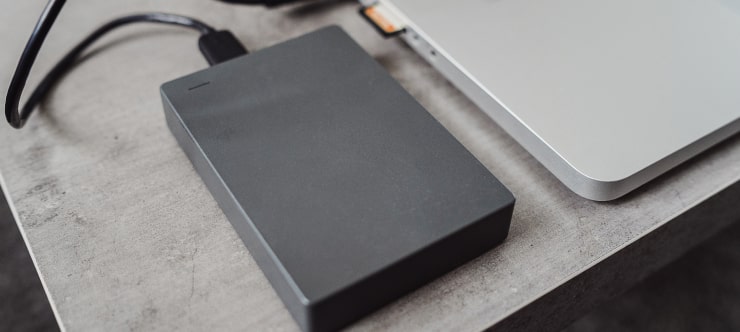
External Drive Data Recovery
We recover data from both external SSD and HDD drives. Rely on certified experts to restore your important files from damaged or corrupted external drives.
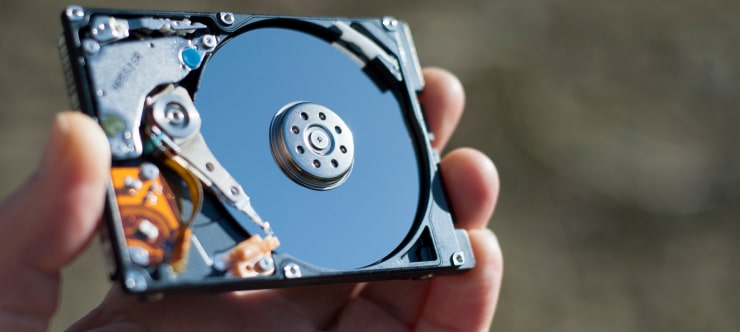
Hard Drive Data Recovery
Recover data from all brands of HDD, PC hard drives, and hybrid disks. Our specialists ensure fast and secure recovery for any data loss scenario.
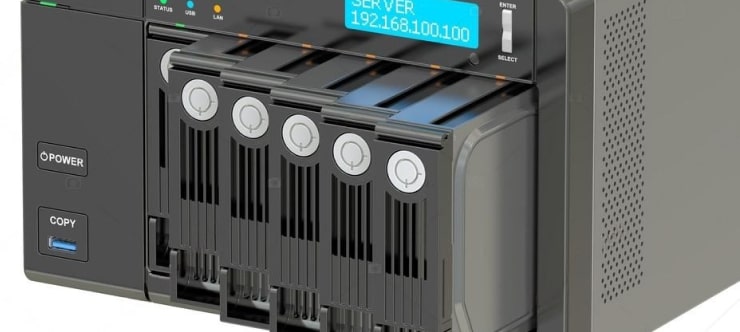
NAS Data Recovery
Recover data from NAS devices, including RAID configurations. Our team handles all types of NAS systems and ensures data recovery with minimal downtime.
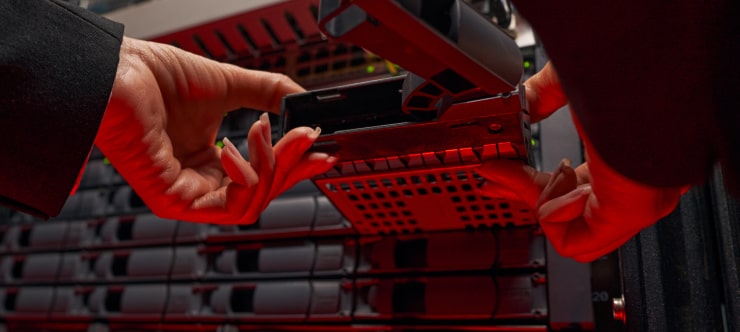
RAID Data Recovery
Our RAID data recovery services cover RAID 0, 1, 5, 10, and other configurations. We offer expert solutions for failed, degraded, or corrupted RAID arrays.
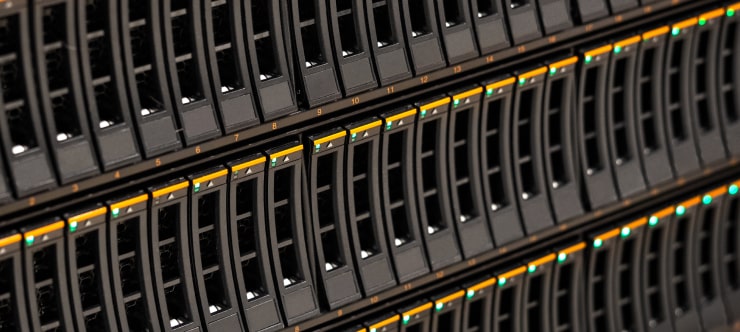
SAN Data Recovery
Our team specializes in handling SAN devices from leading manufacturers like Dell EMC, HP, and IBM, ensuring efficient recovery with minimal disruption to your operations.
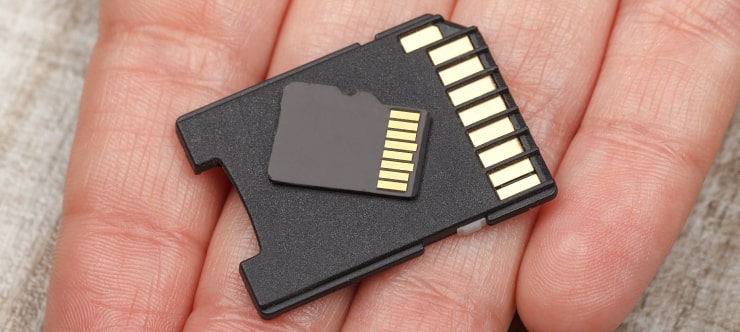
SD Card Data Recovery
Our recovery experts specialize in restoring data from SD and memory cards. We guarantee quick recovery with a no-data, no-charge policy.
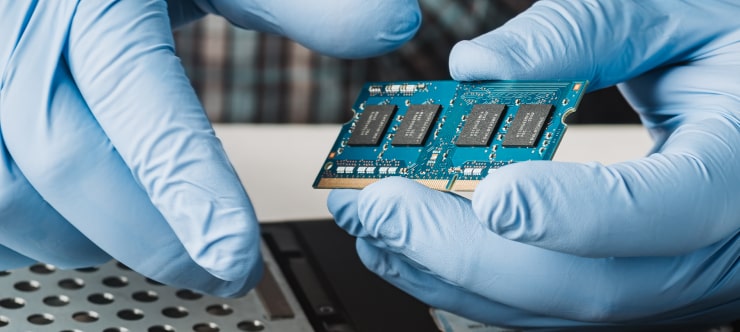
SSD Data Recovery
Our data recovery experts handle all SSD data loss scenarios with advanced tools, ensuring maximum recovery with high-security protocols.
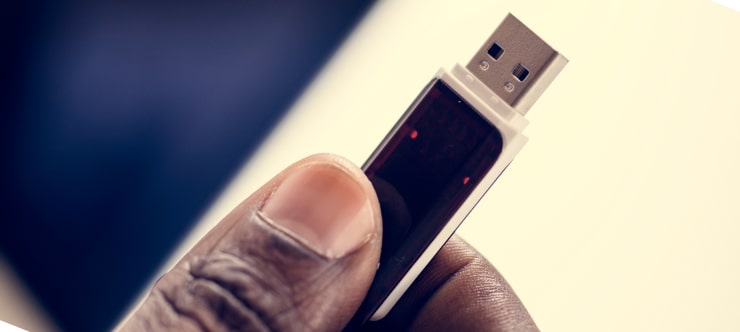
USB Flash Drive Data Recovery
Recover lost data from USB flash drives, regardless of the damage or brand. We offer free in-lab evaluations to assess data recovery needs.
If you’re unsure about which data recovery service to choose, let our team assist you in selecting the appropriate solutions. We understand the anxiety that comes with a sudden drive failure, and we are more prompt in our actions compared to other recovery service providers.



